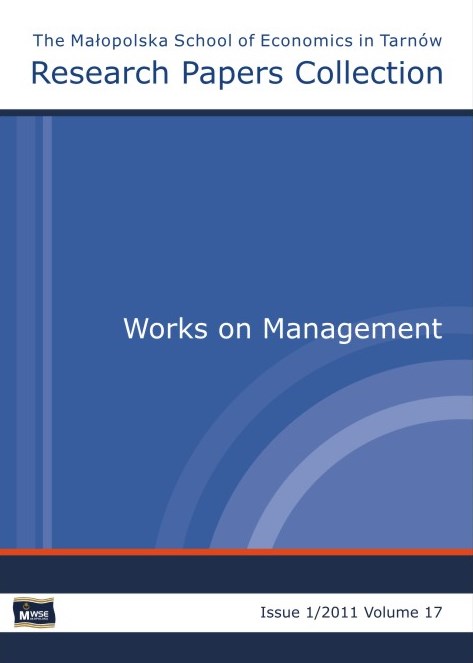Abstract
Sciences characterise some special quality. Each science saves expensed action, that is to say time and energy. Moreover, professionals are responsible for their action and they can be suing if their work fails. Bridge or plain constructors are responsible for their work, as well medical doctors, and other similar professions. It is also met among some economic disciplines. Who is able to measure periodical income of company faster, cheaper, and better than double entry accounting system? This is not a case of macroeconomics, particularly the most important domain, namely the theory of money. This is economic domain where fundamental law of energy conservation is not respected, despite the fact that in sciences this principle is known since 150 years. Each professional takes into regard the fact that ability of doing work cannot be created. The present theory of money admits action against this never broken rule. Therefore it is not a science. This fact is damaging for societies and for that reason possible economic progress is blocked by budget deficits and taxes.
References
Atkins P., Palec Galileusza. Dziesięć wielkich idei nauki, przeł. T. Hornowski, Dom Wydawniczy Rebis, Poznań 2005. ISBN 978-83-7301-541-8.
View in Google Scholar
Bernstein L.P., Capital Ideas Evolving, John Willey and Sons, Hoboken 2007. ISBN 9780471731733.
View in Google Scholar
Bliss J., Cohen A.J., Harcourt G.C., Capital Theory, Edward Elgar Publishing, Bodmin 2005.
View in Google Scholar
Burzym E., Rachunkowość przedsiębiorstw i instytucji, Państwowe Wydawnictwo Ekonomiczne, Warszawa 1980.
View in Google Scholar
Cieślak I., Dobija M., Teoretyczne podstawy rachunkowości kapitału ludzkiego, Zeszyty Naukowe nr 735, Akademia Ekonomiczna w Krakowie, Kraków 2007, s. 5–24.
View in Google Scholar
Cieślak I., Kucharczyk M., Theory of capital in fair pricing of agriculture products. In: M. Dobija (ed.), General Accounting Theory – Towards Balanced Development, University of Economics, Cracow 2007.
View in Google Scholar
Dobija M. (red.), Teoria pomiaru kapitału i zysku, Wydawnictwo Uniwersytetu Ekonomicznego w Krakowie, Kraków 2010. ISBN 978-83-7252-500-0.
View in Google Scholar
Dobija M., Abstract nature of capital and money, [w:] L.M. Cornwall (ed.), New Developments in Banking and Finance, Chapter 4, Nova Science Publishers, New York 2007, inc. 89–114.
View in Google Scholar
Dobija M., Human Resources Costing and Accounting as a Determinant of Minimum Wage Theory, Zeszyty Naukowe nr 553, Cracow University of Economics, Kraków 2000.
View in Google Scholar
Garrison R.W., Natural and neutral rates of interest in theory and policy formulation, „Quarterly Journal of Austrian Economics” 2006, vol. 9, no. 4.
View in Google Scholar
Gleiser M., Nie ma nic złego w tym, że nie wiemy wszystkiego,. In: J. Brockman (ed.), What Is Your Dangerous Idea? Today’s Leading Thinkers on the Unthinkable, Harper Periennial, New York 2007. Wydanie polskie: Niebezpieczne idee we współczesnej nauce, przeł. A. Nowak, Smak Słowa, Sopot 2008.
View in Google Scholar
Goetzmann W.N., Ibbotson R.G., History and the Equity Risk Premium, „Yale ICF Working Paper” 2005, April 6,, http://ssrn.com/abstract=702341.
View in Google Scholar
Hawking S.W., Krótka historia czasu – od wielkiego wybuchu do czarnych dziur, przeł. P. Amsterdamski, Wydawnictwo Alfa, Warszawa 1996. ISBN 83-7150-075-0.
View in Google Scholar
Ijiri Y., Segment statements and informativeness of measures: Managing capital vs. managing resources, „Accounting Horizons” 1995, vol. 9, no. 3.
View in Google Scholar
Knight F.H., Risk, Uncertainty, and Profit, Hart, Schaffner & Marx, Houghton Mifflin Company, Boston 1921, [online]. Dostępny w Internecie: http://www.econlib.org/library/Knight/knRUP7.html (dostęp: 15.02.2006).
View in Google Scholar
Kołodko G. (red.), Globalizacja, kryzys i co dalej?, Wydawnictwo Poltext, Warszawa 2010. ISBN 978-83-7561-116-8.
View in Google Scholar
Kołodko G.W., Wędrujący świat, Prószyński i S-ka, Warszawa 2008. ISBN 978-83-7469-712-5.
View in Google Scholar
Kozioł W., Kształtowanie wynagrodzeń podstawowych nauczycieli akademickich na podstawie pomiaru kapitału ludzkiego i intelektualnego. W: Nierówności społeczne a wzrost gospodarczy. Spójność społeczno-ekonomiczna a modernizacja gospodarki, Zeszyt nr 16, red. M.G. Woźniak, Wydawnictwo Uniwersytetu Rzeszowskiego, Rzeszów 2009, s. 280–290.
View in Google Scholar
Koźmiński A.K., Sztompka P., Rozmowa o wielkiej przemianie, Wydawnictwo Akademii Leona Koźmińskiego, Warszawa 2004. ISBN 83-89437-13-9.
View in Google Scholar
Kurek B., The risk premium estimation on the basis of adjusted ROA. In: I. Górowski (ed.), General Accounting Theory. Evolution and Design for Efficiency, Wydawnictwa Akademickie i Profesjonalne, Warsaw 2008, p. 375–392.
View in Google Scholar
Lambert F.L., Disorder – A cracked crutch for supporting entropy discussions, „The Journal of Chemical Education” 2002, no. 79 (2), p. 187–192.
View in Google Scholar
Mazur M., Cybernetyka i charakter, Państwowy Instytut Wydawniczy, Warszawa 1976.
View in Google Scholar
Mirowski P., More Heat Than Light, Economics as Social Physics: Physics as Nature’s Economics, Cambridge University Press, Cambridge 1989.
View in Google Scholar
Pacioli L., Summa di arithmetica, geometría, proportioni et proportionalità, Venecia 1494.
View in Google Scholar
Pikulska-Robaszkiewicz A., Lichwa w państwie i prawie republikańskiego Rzymu, Wydawnictwo Uniwersytetu Łódzkiego, Łódź 1999. ISBN 83-7171-255-3.
View in Google Scholar
Sampson S.D., The purpose of life is to disperse energy. In: J. Brockman (ed.), What Is Your Dangerous Idea? Today’s Leading Thinkers on the Unthinkable, Harper Periennial, New York 2007. Wydanie polskie: Niebezpieczne idee we współczesnej nauce, przeł. A. Nowak, Smak Słowa, Sopot 2008.
View in Google Scholar
Stiglitz J.E., Wizja sprawiedliwej globalizacji. Propozycje usprawnień, Wydawnictwo Naukowe PWN, Warszawa 2007. ISBN 978-83-01-15138-6.
View in Google Scholar
© Copyright by Małopolska School of Economics in Tarnów. The articles are available under the Creative Commons Attribution NonCommercial-NoDerivatives 4.0 International License


